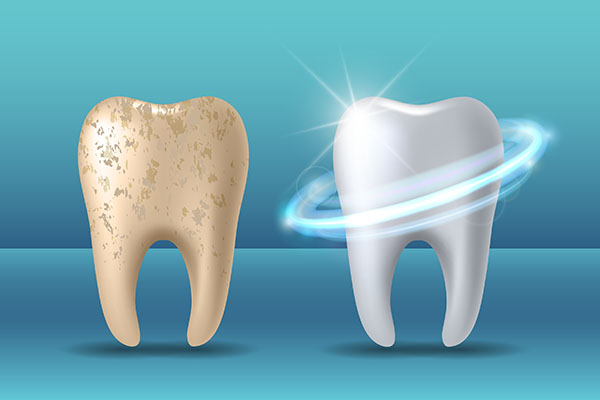A Family Dentist Explains What Causes Cavities

Do you think you have a cavity and are looking for a family dentist to help? Having cavities is one of the most common health problems in the world, especially among children and teenagers. If left untreated, cavities can cause bigger oral health problems like infection, severe toothaches and tooth loss.
What causes cavities?
By definition, cavities are the damaged parts of the surface of your teeth that develop into small holes. Cavities, which are also known as caries, are caused by the combination of poor oral hygiene, frequent snacking, sugary drinks and the bacteria in your mouth.
Fortunately, cavities can be treated by practicing good oral hygiene, which means brushing your teeth at least twice a day, flossing regularly and making regular visits to your family dentist.
Cavities are caused by the decay of your tooth, which happens over a long period of time. The process starts with plaque, which is the filmy substance on the surface of your teeth caused by the bacteria in your mouth feeding on the starch and sugars you consume.
The plaque on your teeth contains acids that gradually weaken your enamel and create tiny holes in it. As the tooth decay continues, the bacteria and acids move on to the pulp of the tooth, which contains blood vessels and nerves. The irritation of the pulp by the acids and bacteria leads to swelling, which continues to expand and cause pain.
Symptoms of cavities
There are no symptoms of cavities in the early stages, which makes it hard to know that you have cavities unless you go to your family dentist for regular checkups. As the hole gets bigger, you will experience a few symptoms, including:
- Sensitive teeth
- Pain when you chew food
- Staining on the surface of a tooth
- Visible holes in your teeth
- Toothaches
Preventing cavities
Since cavities can lead to the loss of your teeth if left untreated, prevention is the best cure, which is why your family dentist can provide some tips on how to prevent cavities, which include:
Brushing with fluoride toothpaste
Fluoride is very effective in preventing cavities, which is why your family dentist tells you to use fluoride toothpaste when you brush your teeth. You should try to brush after every meal, but if you cannot do so, rinse your mouth with water or mouthwash shortly after eating and chew a piece of sugar-free gum.
Drink plenty of tap water
The public water in most cities in the United States contains fluoride, which means you can strengthen your enamel by consuming plenty of tap water.
Get regular dental examinations
Cavities can be difficult to spot by just looking at your teeth in the mirror and the decay will progress if it is left untreated. Regular trips to the dentist will help you spot the problem early, allowing you to begin treatment immediately.
Conclusion
Cavities can cause a lot of damage to your teeth and leave you in a lot of pain, which is why you need to brush your teeth regularly to reduce your chances of tooth decay. If you have some pain in your teeth but do not notice any cavities, schedule an appointment with your family dentist to make sure your mouth is cavity-free.
Request an appointment here: https://crossstreetfamilydentistry.com or call Cross Street Family Dentistry at (978) 531-2122 for an appointment in our Peabody office.
Check out what others are saying about our dental services on Yelp: Family Dentist.
Related Posts
A family dentist serves as the front line of defense for oral health and preventive care. They can see patients from childhood all the way through their lives, allowing for a level of continued care, attention, and personal knowledge that is unmatched among other types of dental offices. If you are considering what kind of…
Most parents do not take their children to see a family dentist until they are well over two years of age. Dental professionals recommend that a child should visit the dentist within six months after teething starts. Baby teeth often start coming in from six months of age. Continue reading to learn more about children’s…
Are you thinking of using mouthwash and wondering what your family dentist recommends? For those that practice good oral hygiene, the daily use of mouthwash is part of their routine. For those who do not practice proper oral hygiene, mouthwash is often used as a substitute for brushing their teeth.Despite the ease and benefits of…
Seeing an emergency dentist for tooth extraction is sometimes necessary when pain, damage, or infection develops suddenly. Tooth extractions are typically planned in advance, but urgent situations may require immediate dental care to relieve symptoms and prevent further complications. Knowing when to seek help from an emergency dentist ensures that patients receive prompt and effective…


